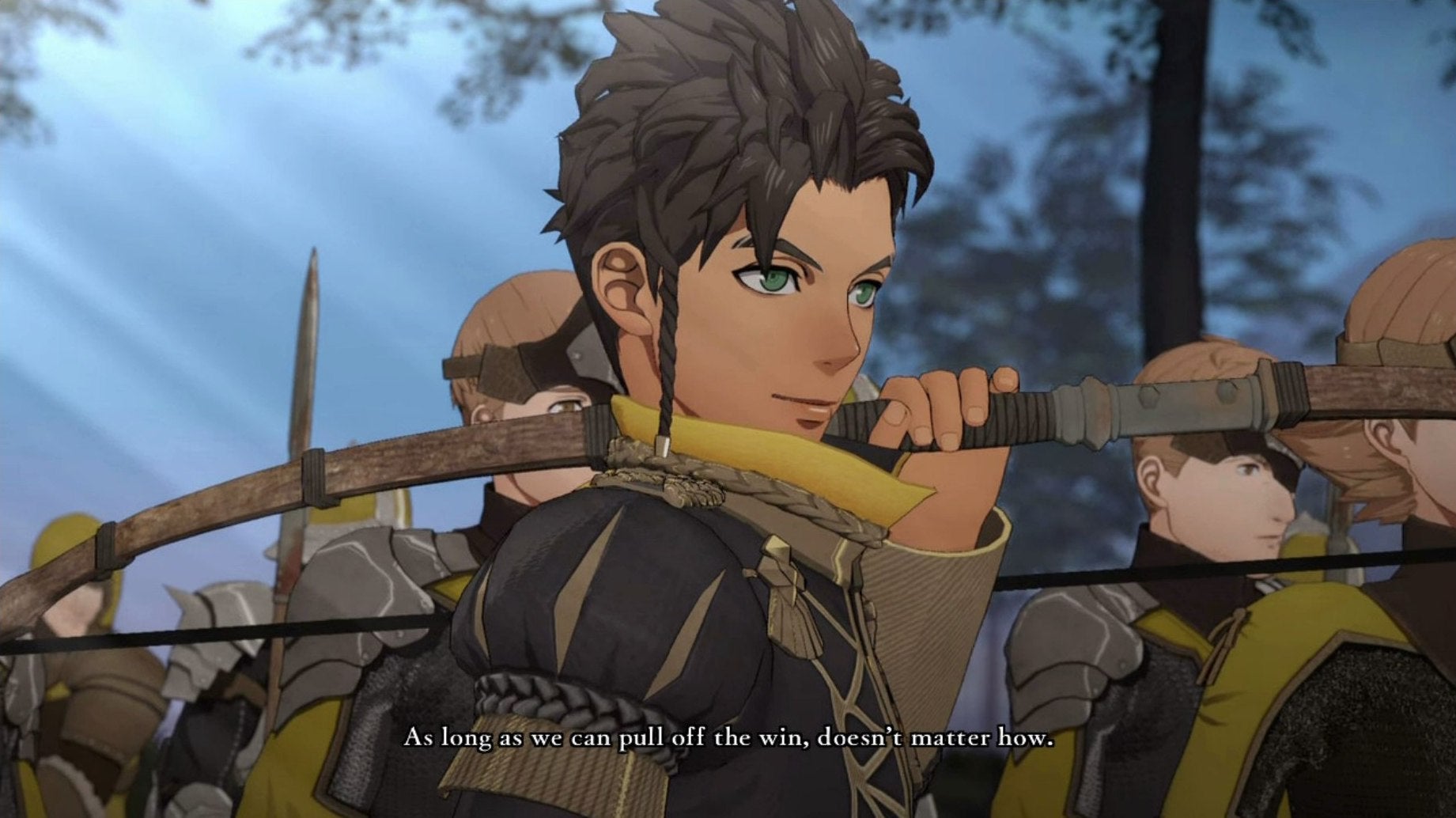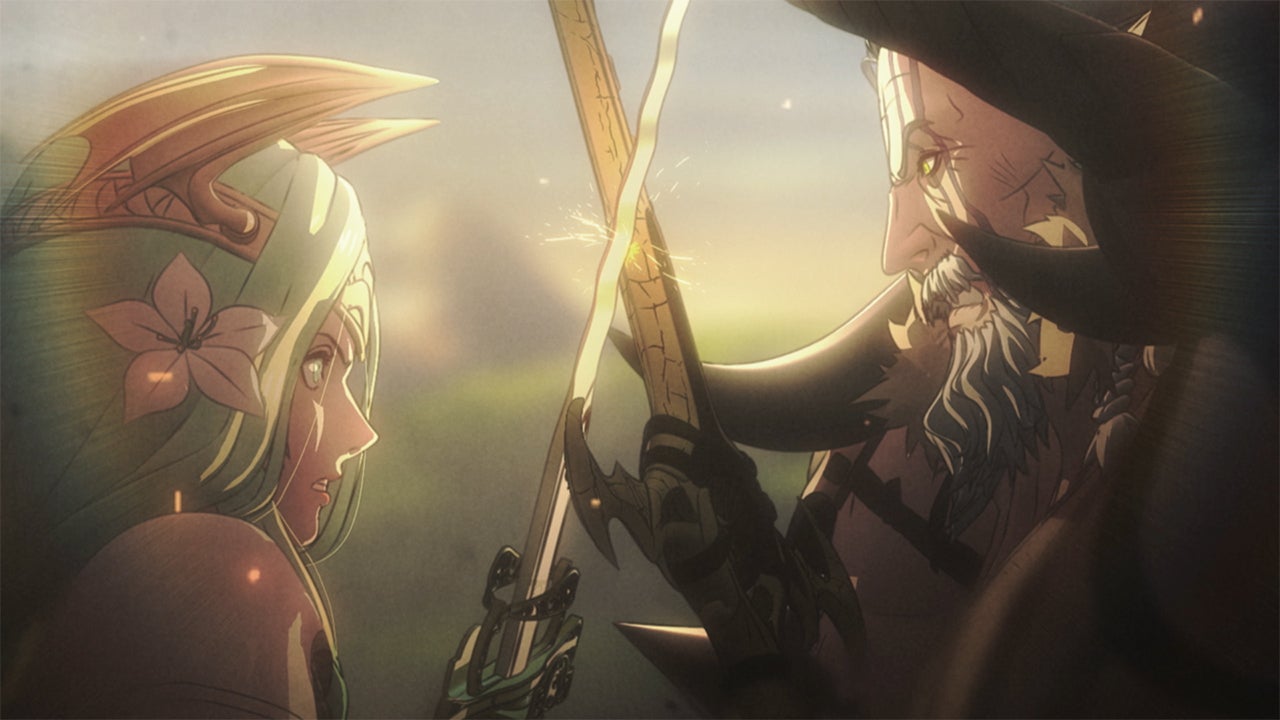Fire Emblem: Three Houses does just that. To be incredibly reductive, the game is a fantasy role-playing title in which you become the teacher of a gaggle of fantasy Etonians who you need to train in the art of war for the in-world equivalent of the Spanish Inquisition. You are the icon of an imperial religious institution, and you are put in direct control of a bunch of spoiled kids with royal blood from three rival nations. The stakes are high, and you can cut the tension in the air with a knife from the second it all kicks off. The opening hours of the game sees all the kids mix: you, teacher, are in charge of making sure they all get along. You feel like, maybe, you could be the vassal of peace – a good example and shining beacon for these kids that seem fated to kill each other. It’s a boarding school slice-of-life, gilded with some dubious hope, and set against the grim (and very real) backdrop of a world torn apart by war. Throwing a tea party, mucking out the stables, sitting a particularly dim student down for an extracurricular one-to-one lesson, and then going out to commit acts of indignant warfare… it’s an odd mix. And yet it works so well. It reminds me a little of Final Fantasy VIII and its peculiar school/mercenary cadence – but Fire Emblem treads the fantasy line, rather than the science fiction one. If you’re into slightly fucked-up power dynamics, you can even fall in love with some of your students. Tacking a romance subplot underneath all these weird interpersonal threads and political shenanigans packs out the fantasy further, making your place in this world feel complete, intimate, authentic. The story is not particularly good, but as a character study – letting you get to know a whole slate of weird and wonderful posh kids – Three Houses excels. There’s a major plot point about halfway into the game that forces you to make a monumental choice, forcing you to pick your favourite students and the house you find yourself most aligned with. This moment, and the repercussions that ripple from it, defines the rest of the game. And watching delicate friendships that had blossomed in the summer campus sun wither and fade is heart-breaking. Seeing old allies and friends turn on each other, sometimes against their will, is dispiriting and enthralling in equal measure. Watching people who once supported each other in class, who helped each other tend to the horses and dragons, who supported each other after some minor heartbreak, draw their blades and run each other through on the battlefield… it’s a dark reminder that we all outgrow our friendships. In Three Houses, it just comes to a more grimdark fantasy endpoint than it does in real life. In The History Boys – his trauma-informed, queer-flavoured tale of college boys coming of age in 80s Sheffield – Alan Bennet wrote one of the most impactful reflections on the importance of fiction I’ve ever read in my life. “The best moments in reading are when you come across something – a thought, a feeling, a way of looking at things – which you had thought special and particular to you,” Bennet wrote. “Now here it is, set down by someone else, a person you have never met, someone even who is long dead. And it is as if a hand has come out and taken yours.” I think that goes beyond just reading; I think you can experience that same connection across time and space, too. And I think some of the characters – and the hardships they live through – certainly have the capacity to reach out and grab your hand through the screen in Fire Emblem: Three Houses. I think the story it tells – of friendships, of loyalty, and of love, all ripped apart by war and the insecurities of those with power – is important, and well-realised. For a series brimming with anime tropes and questionable stances on queerness, Three Houses is surprisingly compassionate and understanding. It’s a special game, and one that will stay with me forever – and I think it’s that boarding school setting and the melting pot of personalities within it that allowed for that to happen.

